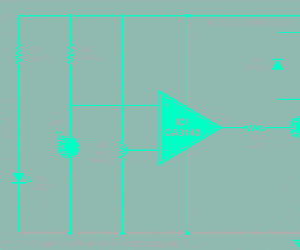The optocouplers control AC loads in applications ranging from household appliances to industrial systems.

Würth Elektronik provides a solution for phase control of AC loads with its new WL-OCTR optocouplers, offering a reliable alternative to mechanical relays. These TRIAC optocouplers are ideal for applications such as lamp dimming and AC motor driving in household appliances and can also drive high-current TRIACs. Some of the applications of the optocoupler include its use in white goods, AC motor drivers, industrial controls, static power switches, temperature controls, and light controls.
The optocouplers primarily use electrical engineers and product designers in various industries, including household appliance manufacturing, the lighting industry, industrial automation, and HVAC systems. These professionals utilize the optocouplers in multiple applications, such as integrating precise control mechanisms into white goods, developing dimming controls for residential and commercial lighting, managing industrial controls and static power switches, and implementing temperature controls in heating, ventilation, and air conditioning systems. The optocouplers are valued for their reliability, safety, and durability, making them essential components in professional electronic design and manufacturing.
Available with or without a zero-cross function to adjust the TRIAC switch-on point, these optocouplers come in THT and SMT designs, packaged in DIP4, DIP6, and SOP4, with trigger currents of 5, 10, or 15 mA. They feature a Comparative Tracking Index (CTI) of over 500 and insulation voltages of 3750 or 5000 V, ensuring robust circuit protection. Like all Würth Elektronik optocouplers, they meet all necessary standards, including UL1577, EN IEC 60747-5-5 VDE 0884-5, and CQC GB 4941.1-2022.
The characteristics of these components include both Zero-Cross and Non-Zero Cross (random phase) types, with various trigger currents and peak off-state voltages available. They feature a high isolation voltage and are certified by VDE, UL, and CQC, ensuring compliance with international safety standards.






